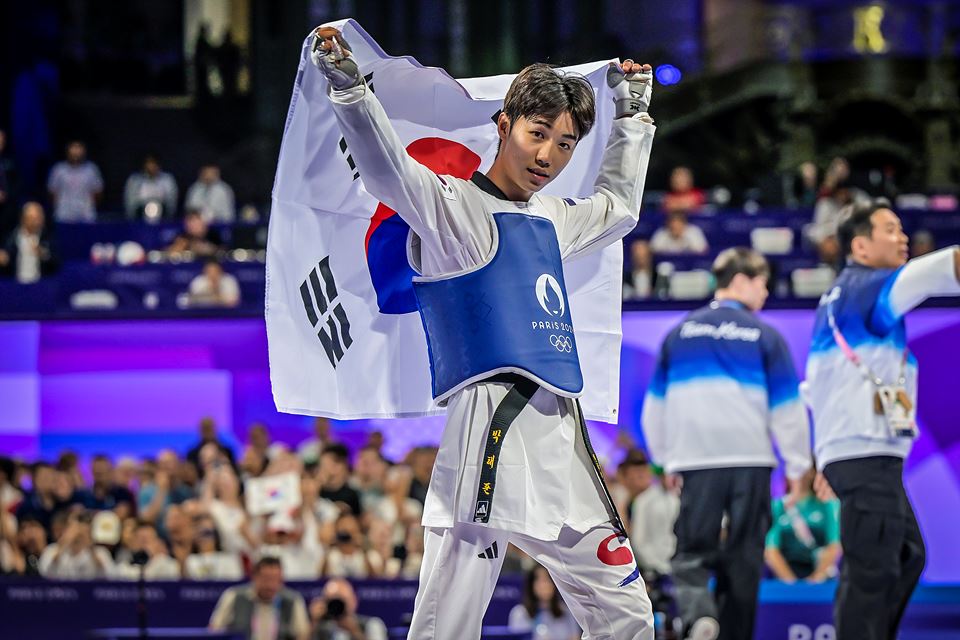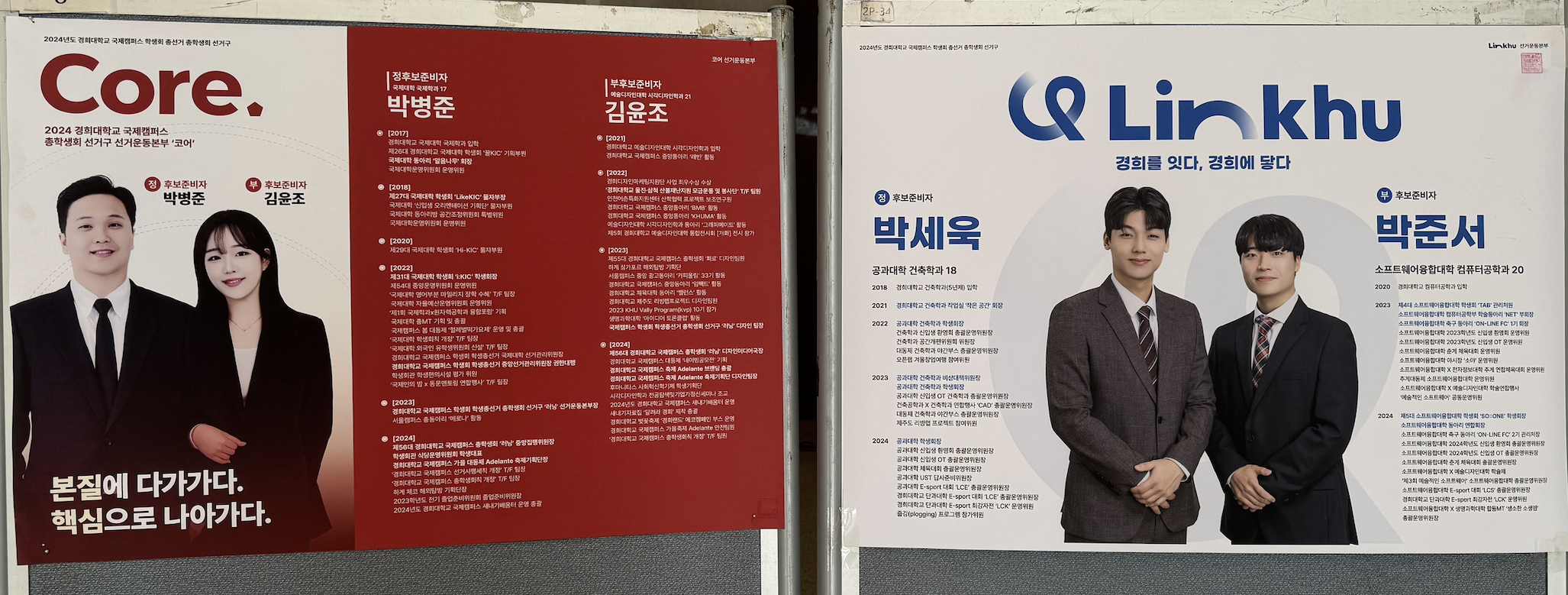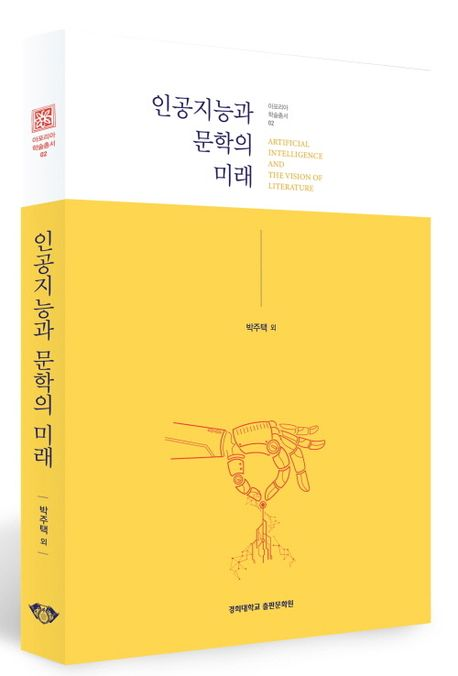[Feature] Artificial Intelligence and the Vision of Literature, Exploring AI’s Impact on Literature
On January 1, 2024, the academic compilation Artificial Intelligence and the Vision of Literature, promoted by the Praxis Research Society (PRS) led by Professor Park Ju-taek of the Dept. of Korean Language & Literature at Kyung Hee University (KHU), was published by KHU Communication & Press.
Public interest in AI utilizing text has surged with the emergence of large language models (LLMs) like the Chat Generative Pre-trained Transformer (ChatGPT). This book examines the potential and limitations of artificial intelligence (AI) in literature in today’s world, where AI technology is widely diffused and increasingly valued in academic fields.
The book covers various aspects, from academic applications of LLMs to research progress and ethical considerations, compiling discussions on topics such as writing education, translation, and future environments utilizing AI.
Introduction of Prof. Park and the PRS
Prof. Park completed both undergraduate and doctoral programs at the Dept. of Korean Language & Literature at KHU. He pursued his dream of becoming a poet and began his career in 1986 when his work Dream’s Moving Architecture was selected for the Kyunghyang Shinmun Annual Spring Literary Contest. He published several works and won multiple awards, including the Modern Poetry Award and the Sowol Poetry Prize. Currently, he is a professor at KHU and the director of the Korean Literature Research Institute.
Additionally, he established the PRS, a group of around 30 professors, doctors of philosophy, and researchers. Praxis means practice in ancient Greek, and the society focuses on multidimensional research on humanistic topics, particularly literature. They reassess, standardize, and rediscover literary figures who have contributed to Korean poetry, providing fair evaluations and reaffirming their scholarly and literary value. Notable publications include Spatial Studies of Modern Korean Poetry, Modern Gyeongseong and Postwar Seoul, and Literary Studies of Yoon Gon-gang. The society designs academic and humanities programs to encompass changing cultural domains and future values, contributing to Korean humanities research.
AI in Literature: A Comprehensive Study
In the compilation Artificial Intelligence and the Vision of Literature, overseen by Prof. Park, nine studies conducted by 11 authors affiliated with the PRS are included, divided into three sections. Part one, “Literature of AI,” features multidimensional analyses ranging from rhetorical approaches to the interpretation of poetic expression and contemplations on poetic diction, all utilizing AI. Part two, “Aspects of ChatGPT Utilization,” showcases various case studies on the practical applications of OpenAI Co.’s ChatGPT, a highly recognized and increasingly utilized AI model. The final part, “Case Studies and Introductions,” offers a broad examination of AI utilization, including its application in literary and cultural dimensions and its potential as an educational alternative.
Prof. Park mentioned that among the studies included in the book, he found Lee Koo-yong’s research, The Usefulness and Limitations of AI Literature Translation, to be the most impressive. He noted that this study is significant for its practical summary of the functions and utility AI can have in literary translation and its connection to future research. Specifically, the study includes a meticulous statistical analysis of the overseas publishing market and explores whether literary translations using ChatGPT can yield significant results compared to actual translations. It also mentions that, considering AI can perform more advanced tasks by learning high-quality data in the future, positive and useful outcomes could be achieved.
Advancements and Directions of AI in Literature
Today, AI has significantly influenced our lives. Interest in AI’s application in the arts has grown with the release of the AI historical scenario PAPHOS 2.0 in August 2023, based on poems created by the AI poetry generation system Sia. This book holds value as it explores the potential applications and limitations of incorporating AI into literary research.
Prof. Park suggested that new research methodologies connecting AI and literature are a proactive response to technological advancements. He emphasized the importance of using AI to objectively understand issues in today’s literary landscape. AI can help researchers analyze poetry using large-scale text data to identify patterns, understand changes in authors’ styles, and track similarities among literary works. These benefits can diversify literary research themes and provide a foundation for empirical studies that might otherwise be overlooked. Considering these aspects, he argued that efforts to utilize AI should be continued.
However, he stressed the need for extensive discussions about AI, cautioning against adopting it without proper preparation and solely focusing on its benefits. AI requires human validation and oversight to ensure the accuracy and expertise of its content. Given this, he believes AI’s role in literature will be mainly instrumental, highlighting the necessity for further advancements to enable AI to serve a more efficient, supportive role.
Lastly, he advocated for continuous efforts to establish appropriate guidelines for AI, emphasizing that once these guidelines are in place, discussions about AI’s potential will become more significant. He hopes this book will serve as an important resource for understanding various AI-related issues in the literary field before embarking on diverse AI endeavors.
This book analyzed the capabilities and limitations of AI in literature from various perspectives. It explored the new paradigm of AI in literature through rhetorical analysis, interpreting poetic expression, and considering poetic diction, thereby examining AI’s value. By applying AI to real-life cases, it also presented the positive direction of AI. Prof. Park noted, “While AI technology holds immeasurable possibilities when combined with literature, it will never undermine the creative value of literature or replace the unique aesthetic consciousness of humans.”
He advocated for ongoing research in the literary field of AI, emphasizing that both the creation and analysis of literary works using AI should continue to evolve. However, he stressed the importance of not adopting blind obedience to AI, as the final judgment should remain with humans. Given AI’s limitations alongside its potential, it is crucial to approach its utilization thoughtfully. With a proper attitude, AI’s potential can be harnessed effectively, ensuring that human oversight guides the development of AI in literature.
There are no registered comments.
- 1
- 2
- 3
- 4
- 5
I agree to the collection of personal information.





